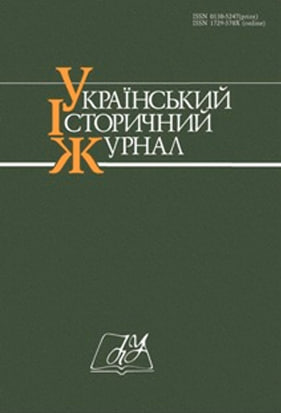“Conflict of Remembrance”: On the Issue of Honoring the Victims of the Polish-Ukrainian Confrontation of the 1940s in Present-Day Poland
DOI:
https://doi.org/10.15407/uhj2020.05.090Keywords:
Poland, Ukrainians, Polish, memorials, conflict, dialogueAbstract
The purpose of the research is to present the activities of the Ukrainian minority in Poland which aim to commemorate their loved ones and the victims of the Polish-Ukrainian conflict during World War II and the after-war period. The author also aims to answer the following question: why have the memorials of the Ukrainian minority in Poland met with opposition from a part of the Polish population?
The research methodology. Research methods available to the historian were applied in the study including criticism of archival and journalistic sources and critical approach to the findings to-day. Statistical, geographical and sociological methods were also used.
The scientific novelty. The topic has not been a separate purpose of research so far. The findings made by the author enrich the knowledge on the causes of the Polish-Ukrainian conflict concerning Ukrainian memorials in Poland and verify the previous findings.
Conclusions. After 1989, the Ukrainian community in Poland set about to renovating or building new memorials not only on the graves of their loved ones but also on the graves of the victims of the Polish-Ukrainian conflict. Putting up tombstones or monuments on the graves of murdered Ukrainians, especially members of the Ukrainian Insurgent Army, met with opposition from a part of Polish population as it simply hurt their feelings. Frequently, it was because their loved ones lost their lives from the hands of the Ukrainian Insurgent Army. Moreover, the renovated graves comemorated murdered Ukrainians in the category of victims and not oppressors. It contradicted the Polish view of the conflict which was perceived through their own harm and suffering inflicted by the Ukrainians.


